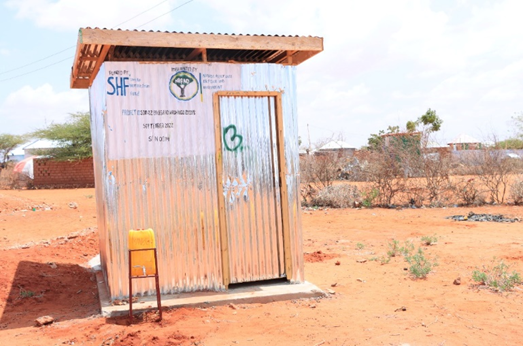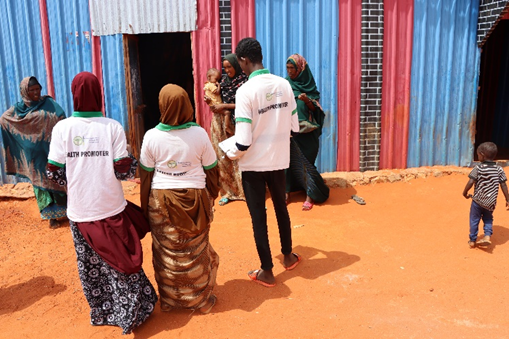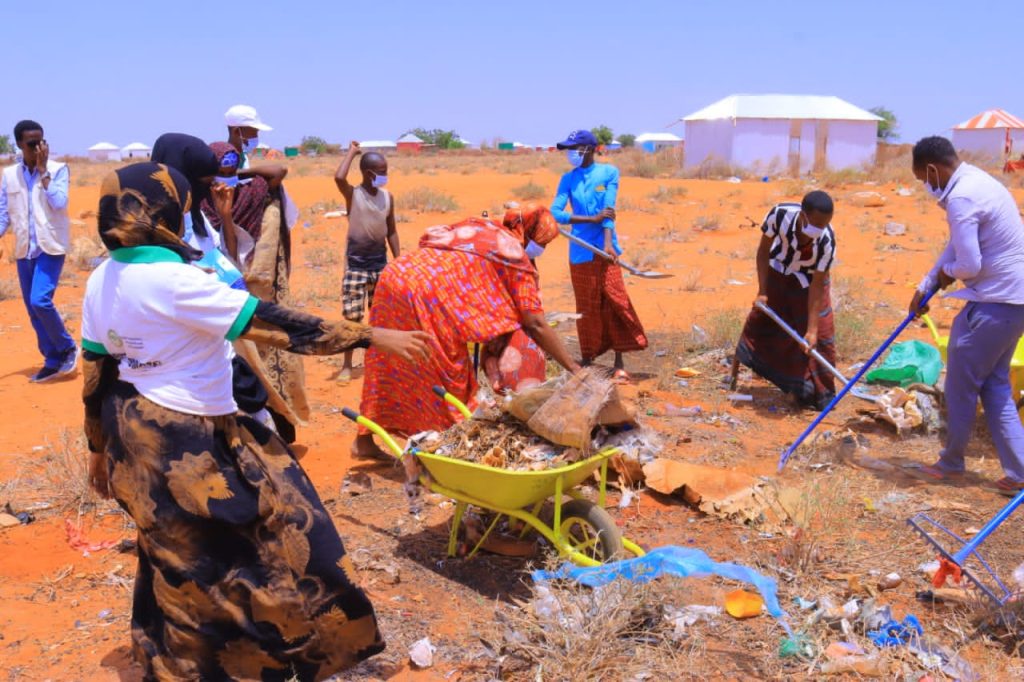According to the Protection and Return Monitoring Network (PRMN), 1.4 million individuals have been displaced internally within Somalia in 2022. These include 926,000 displacements due to the ongoing drought and 68,000 new displacements in September 2022 alone. Most of those displaced end up in already crowded settlements with inadequate sanitation facilities as well as inadequate water to promote appropriate hygiene and sanitation practices. In addition, among the displaced, there is limited information on appropriate hygiene and sanitation practices in their context leaving them susceptible to disease outbreaks such as acute watery diarrhoea and cholera among other diseases. Due to limited sanitation facilities those affected result in practising open defecation. For women and girls, it is not only inconvenient but also undignified and unsafe for human and animal predators.
Nomadic Assistance for Peace and Development (NAPAD) in partnership with the Somalia Humanitarian Fund(SHF) through a project aimed at providing IDP households in Abudwak District, Somalia with emergency Water, Sanitation and Health (WASH) services, has constructed 140 latrines in the Daya’an, Ala Amin, and Balgorey IDP settlements. These latrines are equipped with hand washing stations that promote hand washing after using latrines. The latrines are providing a safe and private space for over 1000 households living in the IDP camps.
Latrines Allow for Dignity and Safety in Use.
Habibo Mohamed Yusuf, 40, lives in Ala-Amin IDP camp together with her 8 children. She was forced to move from her home to this IDP camp after drought ravaged their livelihood. Habibo is now the breadwinner in her family, working menial jobs in Abudwak to support her children. Habibo recalls that before the latrines were constructed, she feared for the safety and health of her children who regularly practised open defecation.
“We were forced to share the existing latrine with so many other people due to a lack of enough latrines in our camp.” Habibo reports, “My children frequently practised open defecation since they did not have the patience to wait their turn or it was too dark at the camp during the night to get to the latrine.”

“I don’t have to worry about looking for a safe place to relieve myself, and I save a lot of time because the latrines are nearby,” reports Habibo “In my household, we have also all embraced washing our hands with soap and clean water after using the toilet even my children.”
Community-Led Hygiene and Sanitation Promotion
The project also provided 1000 households with hygiene kits to improve safe domestic water collection and storage and improve hand washing with soap and water. The dignity kits will ensure women and girls practice proper menstrual hygiene management. Additionally, NAPAD has trained 20 Community Health Promoters (CHP) who conduct door-to-door hygiene promotion campaigns in the IDP camps, educating households on the importance of purifying drinking water, safe water handling, effective hand hygiene, and how to maintain proper hygiene and sanitation to prevent water-borne diseases. This has gradually stimulated behaviour change among these vulnerable households on proper sanitation and hygiene.

Finally, the project supported the formation and equipping of community volunteer groups who now conduct monthly environmental clean-ups to improve solid waste management in the IDP camps and maintain a cleaner living environment for the displaced and host communities and but most importantly ensure the community is fully invested in improving their environment.

